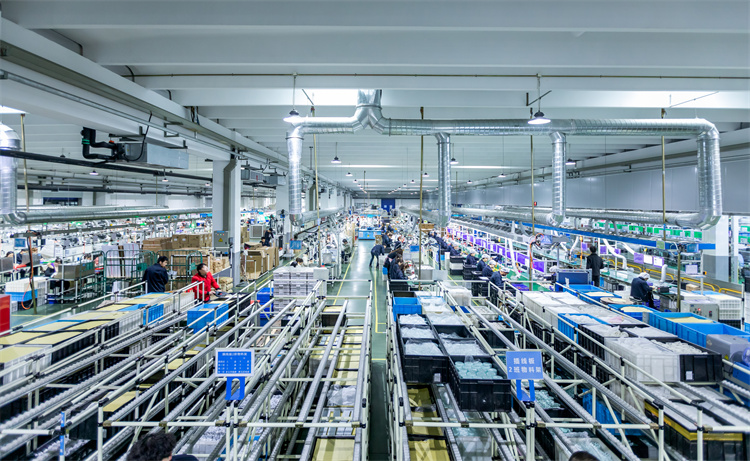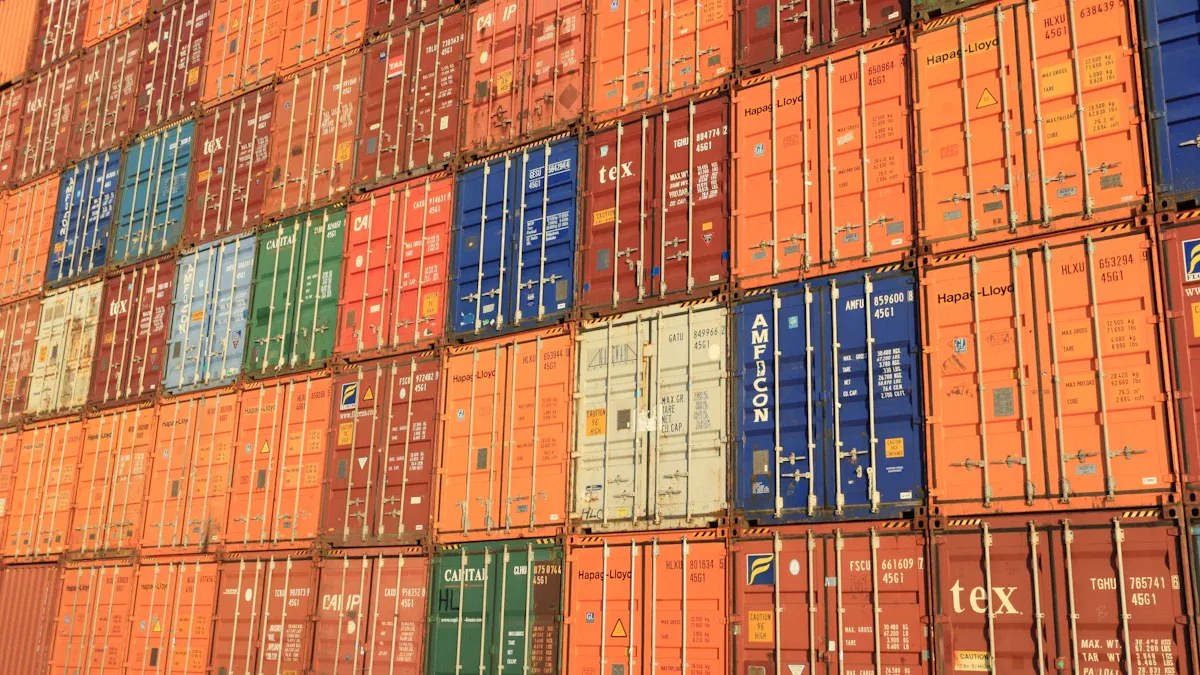Understanding Tariffs and Their Role in Trade

Tariffs are taxes on goods brought into a country. Governments use tariffs to control trade and help local businesses. For example, some U.S. areas have tariffs of 2-7 percent. Other areas may have tariffs higher than 10 percent. Tariffs can protect local industries from foreign competition. JUSDA makes trade easier with smooth supply chain services.
Key Takeaways
Tariffs are taxes on goods from other countries. They make foreign items cost more to protect local businesses.
Higher tariffs can create jobs in local companies. However, they can also raise prices for shoppers and businesses.
JusTrade makes handling tariffs easier. It helps businesses follow rules and trade smoothly with other countries.
What Are Tariffs and Their Purpose in Trade?

Definition and types of tariffs
A tariff is a tax on goods crossing borders. Governments use tariffs to control imports into their country. There are different types of tariffs, each with a purpose. The two main types are ad valorem tariffs and specific tariffs. Ad valorem tariffs are based on the value of goods. For example, a 10% tariff on electronics means the tax depends on the item's price. Specific tariffs, however, are fixed amounts per unit, like $5 for every ton of steel.
Tariffs help protect local industries from foreign competition. They make imported goods cost more, so people buy local products. This supports local businesses and creates jobs. But tariffs can also raise prices for consumers and companies using imported materials.
How tariffs regulate international trade
Tariffs are important in controlling international trade. They change the prices of goods, affecting supply and demand. Higher tariffs make imports more expensive, reducing their purchase. This encourages local production. For instance, raising tariffs on farm goods can help local farmers sell more crops. However, high tariffs may disrupt global trade and cause tensions between countries.
Studies show tariffs have short-term and long-term effects. Temporary tariffs often cause inflation because import costs rise. Permanent tariffs can change industries by boosting local production and cutting imports. Knowing if tariffs are temporary or permanent is key, as they impact the economy differently.
Data shows tariffs affect trade volumes. Countries relying on exports to tariff-imposing nations face risks. For example, U.S. tariffs can harm countries with strong trade ties to the U.S. Global supply chains are connected, so tariff policies have wide-reaching effects.
The role of JusTrade in simplifying tariff-related processes
Handling tariffs and customs rules can be tricky for businesses trading internationally. JusTrade, part of JUSDA, helps simplify this process. JusTrade offers smart solutions to manage tariffs easily. Its advanced platform uses AI and big data to ensure smooth operations and compliance with rules.
JusTrade provides services like product categorization, bonded zone expressways, and cross-border logistics. These tools help businesses handle tariffs and duties better. For example, JusTrade connects with clients' systems to give real-time updates. This helps businesses track imports and exports while following trade laws.
JusTrade's tailored services reduce delays and save money. Whether in electronics or car manufacturing, JusTrade ensures goods move smoothly across borders. Its expertise in tariffs and customs lets businesses focus on growth without worrying about regulations.
Why Do Countries Use Tariffs in Global Trade?
Helping local industries and jobs
Tariffs help protect local businesses and workers. They make imported goods cost more, so people buy local products. This helps local factories grow and creates new jobs. For example, steel tariffs increased U.S. steel production by 10% in two years. But tariffs can also raise costs for companies that need imported materials. Studies show tariffs can add 100,000 jobs in protected industries but may cause 400,000 job losses overall due to higher costs.
Fighting unfair trade practices
Tariffs stop unfair trade actions like dumping or subsidies. These practices give foreign companies an unfair edge. During the U.S.-China trade war, tariffs on Chinese goods aimed to fix problems like stolen ideas and trade imbalances. While U.S. firms paid more for imports, local production grew. European steelmakers also boosted local output to handle global oversupply and keep their businesses steady.
Raising money for governments
Governments use tariffs to collect money. In the U.S., tariffs make up less than 1.6% of federal tax income today. Long ago, tariffs were the main way governments earned money before income taxes existed. Now, they still provide funds for public projects like roads and schools.
Protecting national security and self-reliance
Tariffs help keep important industries strong and safe. A 25% steel tariff ensured enough steel for defense and building projects. Solar panel tariffs doubled to 50% in 2024, growing U.S. manufacturing and jobs. These tariffs make sure key industries stay independent during global problems.
Economic Impact of Tariffs on Trade

Effects on consumers and businesses
Tariffs change the prices of goods and business costs. When tariffs go up, imported goods cost more. This makes foreign products pricier for shoppers. Businesses using imported materials also pay more. They often raise their prices to cover these costs.
For example, a study showed tariffs on washing machines raised prices by 12%. Shoppers paid $1.5 billion more, or $815,000 per job created. While tariffs help local industries, they can hurt jobs in import-dependent sectors.
Study/Source | Key Findings | Economic Impact |
|---|---|---|
Tax Foundation (2002) | Higher prices and lower demand | Job losses in dependent industries |
National Bureau of Economic Research (2019) | Washing machine prices rose by 12% |
These examples show how tariffs affect the economy. They protect local industries but raise costs for businesses and shoppers. This can make the economy less competitive.
Impact on international trade relationships
Tariffs change how countries trade with each other. When a country adds tariffs, trade volumes drop. This can hurt relationships between trading partners. For example, during the U.S.-China trade war, tariffs cut trade and disrupted supply chains.
Tariffs can cause price changes that hurt the economy.
Companies may switch suppliers to avoid high tariffs.
These shifts show how tariffs reshape global trade and goods flow.
These changes can hurt exports and imports long-term. Countries relying on exports to tariff-heavy nations may struggle. Businesses may also find it hard to adjust, hurting their global competitiveness.
How JUSDA and JusTrade optimize trade efficiency amidst tariffs
Dealing with tariffs and customs rules can be hard, but JUSDA and JusTrade make it easier. JusTrade uses smart tools like AI and big data to simplify customs processes and follow trade laws.
JusTrade offers services like fast customs clearance, bonded zone routes, and cross-border shipping. These tools help businesses handle tariffs better, saving time and money. For example, JusTrade connects with your systems to give real-time updates on shipments. This keeps operations smooth and helps you stay competitive.
With its expertise, JusTrade reduces tariff challenges. Whether in electronics, cars, or other industries, JusTrade ensures goods move easily across borders. This lets you focus on growing your business while following trade rules.

JUSDA Solutions
To provide you with professional solutions and quotations.
Tariffs are taxes on goods brought into a country. They help protect local businesses and control trade. Tariffs support local production but make things cost more. They also affect how countries trade with each other. JUSDA and JusTrade make handling tariffs easier. They help businesses follow rules and work smoothly.
See Also
Exploring How Global Trade Policies Shape Economic Landscapes
Understanding the Importance of Supply Chains in Global Trade
Achieving Success in International Trade Through JUSDA
